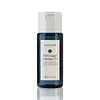What's inside
What's inside
 Key Ingredients
Key Ingredients

 Benefits
Benefits

 Concerns
Concerns

 Ingredients Side-by-side
Ingredients Side-by-side

Water
Skin ConditioningDipropylene Glycol
Humectant1,2-Hexanediol
Skin ConditioningSalicylic Acid
MaskingC12-14 Pareth-12
EmulsifyingOctyldodeceth-16
EmulsifyingMelaleuca Alternifolia Leaf Extract
PerfumingPentylene Glycol
Skin ConditioningSalix Alba Bark Extract
AstringentOenothera Biennis Flower Extract
AstringentUlmus Davidiana Root Extract
Skin ConditioningPinus Palustris Leaf Extract
TonicPueraria Lobata Root Extract
HumectantCentella Asiatica Extract
CleansingFicus Carica Fruit Extract
HumectantHydrogenated Lecithin
EmulsifyingSodium Hyaluronate
HumectantSodium Citrate
BufferingCitric Acid
BufferingXanthan Gum
EmulsifyingDisodium EDTA
Tocopherol
AntioxidantCeramide NP
Skin ConditioningButylene Glycol
HumectantDimethylsilanol Hyaluronate
HumectantHydrolyzed Sodium Hyaluronate
Skin ConditioningHydrolyzed Hyaluronic Acid
HumectantPotassium Hyaluronate
Skin ConditioningHyaluronic Acid
HumectantSodium Hyaluronate Crosspolymer
HumectantHydroxypropyltrimonium Hyaluronate
Sodium Hyaluronate Dimethylsilanol
HumectantSodium Acetylated Hyaluronate
HumectantEthylhexylglycerin
Skin ConditioningWater, Dipropylene Glycol, 1,2-Hexanediol, Salicylic Acid, C12-14 Pareth-12, Octyldodeceth-16, Melaleuca Alternifolia Leaf Extract, Pentylene Glycol, Salix Alba Bark Extract, Oenothera Biennis Flower Extract, Ulmus Davidiana Root Extract, Pinus Palustris Leaf Extract, Pueraria Lobata Root Extract, Centella Asiatica Extract, Ficus Carica Fruit Extract, Hydrogenated Lecithin, Sodium Hyaluronate, Sodium Citrate, Citric Acid, Xanthan Gum, Disodium EDTA, Tocopherol, Ceramide NP, Butylene Glycol, Dimethylsilanol Hyaluronate, Hydrolyzed Sodium Hyaluronate, Hydrolyzed Hyaluronic Acid, Potassium Hyaluronate, Hyaluronic Acid, Sodium Hyaluronate Crosspolymer, Hydroxypropyltrimonium Hyaluronate, Sodium Hyaluronate Dimethylsilanol, Sodium Acetylated Hyaluronate, Ethylhexylglycerin
Water
Skin ConditioningButylene Glycol
HumectantPropanediol
SolventSalicylic Acid
MaskingSodium Polyacrylate
AbsorbentCitric Acid
BufferingGlycerin
HumectantDiglycerin
HumectantCitrus Glauca Fruit Extract
HumectantMicrocitrus Australasica Fruit Extract
Microcitrus Australis Fruit Extract
Skin ConditioningHydroxyacetophenone
AntioxidantCarrageenan
Phenoxyethanol
PreservativeSodium Phytate
Caprylyl Glycol
EmollientPhenylpropanol
MaskingTocopherol
AntioxidantWater, Butylene Glycol, Propanediol, Salicylic Acid, Sodium Polyacrylate, Citric Acid, Glycerin, Diglycerin, Citrus Glauca Fruit Extract, Microcitrus Australasica Fruit Extract, Microcitrus Australis Fruit Extract, Hydroxyacetophenone, Carrageenan, Phenoxyethanol, Sodium Phytate, Caprylyl Glycol, Phenylpropanol, Tocopherol
 Reviews
Reviews

Ingredients Explained
These ingredients are found in both products.
Ingredients higher up in an ingredient list are typically present in a larger amount.
Butylene Glycol (or BG) is used within cosmetic products for a few different reasons:
Overall, Butylene Glycol is a safe and well-rounded ingredient that works well with other ingredients.
Though this ingredient works well with most skin types, some people with sensitive skin may experience a reaction such as allergic rashes, closed comedones, or itchiness.
Learn more about Butylene GlycolCitric Acid is an alpha hydroxy acid (AHA) naturally found in citrus fruits like oranges, lemons, and limes.
Like other AHAs, citric acid can exfoliate skin by breaking down the bonds that hold dead skin cells together. This helps reveal smoother and brighter skin underneath.
However, this exfoliating effect only happens at high concentrations (20%) which can be hard to find in cosmetic products.
Due to this, citric acid is usually included in small amounts as a pH adjuster. This helps keep products slightly more acidic and compatible with skin's natural pH.
In skincare formulas, citric acid can:
While it can provide some skin benefits, research shows lactic acid and glycolic acid are generally more effective and less irritating exfoliants.
Most citric acid used in skincare today is made by fermenting sugars (usually from molasses). This synthetic version is identical to the natural citrus form but easier to stabilize and use in formulations.
Read more about some other popular AHA's here:
Learn more about Citric AcidSalicylic Acid (also known as beta hydroxy acid or BHA) is a well-known ingredient for treating skin that struggles with acne and clogged pores. It exfoliates both the skin's surface and deep within the pores to help clear out buildup, control oil, and reduce inflammation.
Unlike AHAs (alpha hydroxy acids), salicylic acid is oil-soluble. This allows it to penetrate into pores which makes it especially effective for treating blackheads and preventing future breakouts.
Salicylic acid is also known for its soothing properties. It has a similar structure to aspirin and can calm inflamed or irritated skin, making it a good option for acne-prone skin that is also sensitive.
Concentrations of 0.5-2% are recognized by the U.S. FDA as an over-the-counter topical acne product.
It can cause irritation and/or dryness if one's skin already has a compromised moisture barrier, so it's best to focus on repairing that before introducing this ingredient into your routine.
While salicylic acid does not increase sun sensitivity, it’s still important to wear sunscreen daily to protect your skin.
If you are looking for the ingredient called BHA or Butylated Hydroxyanisole, click here.
Learn more about Salicylic AcidTocopherol (also known as Vitamin E) is a common antioxidant used to help protect the skin from free-radicals and strengthen the skin barrier. It's also fat soluble - this means our skin is great at absorbing it.
Vitamin E also helps keep your natural skin lipids healthy. Your lipid skin barrier naturally consists of lipids, ceramides, and fatty acids. Vitamin E offers extra protection for your skin’s lipid barrier, keeping your skin healthy and nourished.
Another benefit is a bit of UV protection. Vitamin E helps reduce the damage caused by UVB rays. (It should not replace your sunscreen). Combining it with Vitamin C can decrease sunburned cells and hyperpigmentation after UV exposure.
You might have noticed Vitamin E + C often paired together. This is because it is great at stabilizing Vitamin C. Using the two together helps increase the effectiveness of both ingredients.
There are often claims that Vitamin E can reduce/prevent scarring, but these claims haven't been confirmed by scientific research.
Learn more about TocopherolWater. It's the most common cosmetic ingredient of all. You'll usually see it at the top of ingredient lists, meaning that it makes up the largest part of the product.
So why is it so popular? Water most often acts as a solvent - this means that it helps dissolve other ingredients into the formulation.
You'll also recognize water as that liquid we all need to stay alive. If you see this, drink a glass of water. Stay hydrated!
Learn more about Water